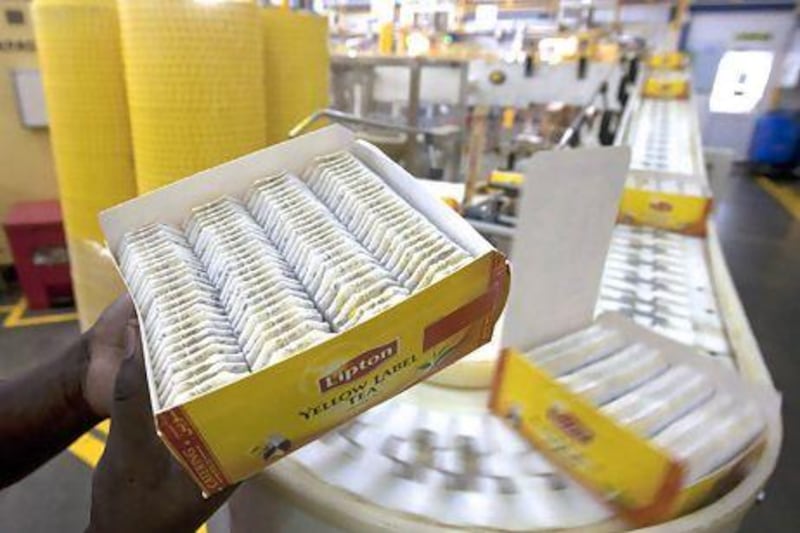Unilever, which dominates the tea market across the Arabian Gulf, relaunched its Lipton brand yesterday after patenting a process designed to make a better brew.
The company claims to have an almost 70 per cent market share in the region between Lipton and Brooke Bond, meaning two out of three cups of tea drunk here will be a Unilever brand.
Lipton's Dubai tea factory, which has increased production sixfold since it started in 1998 and primarily serves the GCC, is currently the company's second-biggest globally and is on course to overtake the number one producer, a Unilever plant in the UK, within a couple of years.
But tea is not the only category that Unilever dominates in the region.
"In 75 per cent of our turnover we are the market leaders. In the last six years we have been growing double digits, despite the Arab spring, despite the financial meltdown," said Sanjiv Mehta, the chairman of Unilever in North Africa and the Middle East.
However, there is still room for the company to grow its market share, even in tea. Only 40 per cent of the volume is in tea bags at the moment. The rest is of the loose, packet variety, so Unilever's job is to convert people from packet tea to bags, said Mr Mehta.
And other opportunities exist in categories such as toothpaste, he added.
"If everyone were to brush their teeth twice a day, a simple expectation, the size of the toothpaste market would be seven times bigger than what it is today," he said.
"It is not just about affordability. It is about habits and practices. The needs and wants across the world are very similar, but the habits, practices and attitudes are very different."
Lipton is pioneering a new production process that squeezes the juice out of the tea leaves to produce a natural tea essence, which is added back in before the drying stage is complete.
"The result is a smoother and fresher-tasting cup of tea with no bitterness," said Seryal Olcay, a senior research and development manager with Unilever. Tests locally proved customers preferred the taste of the new Lipton tea, she said.
"For a brand to remain a market leader, to remain contemporary, you have to remain in sync with the evolving pace of the consumers. And we listen to our consumers," said Mr Mehta.






